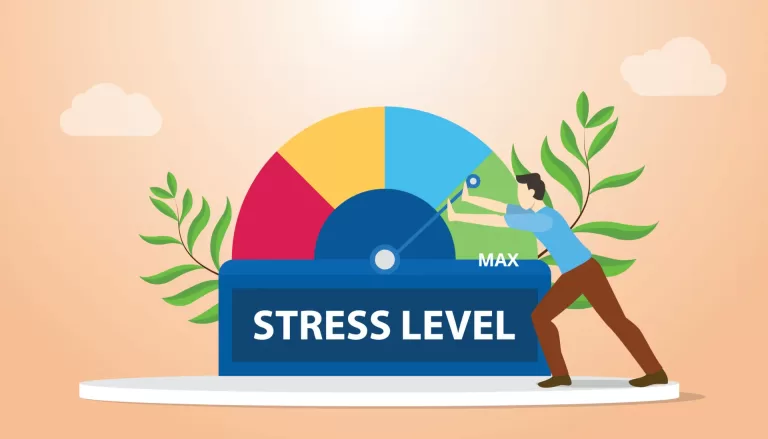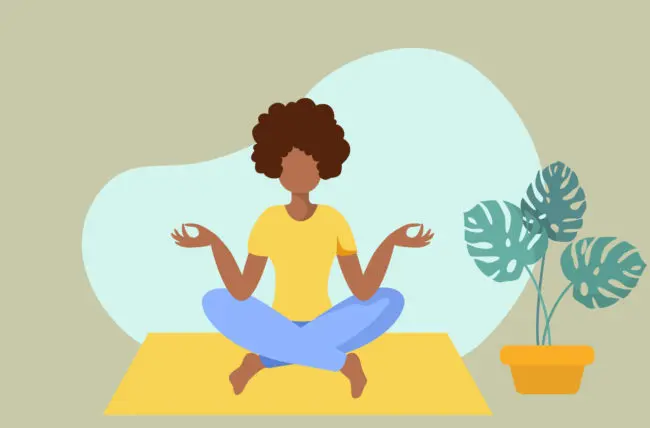Stress is a common problem that affects many people in different ways. It can cause physical and mental health issues, lower your productivity and happiness, and interfere with your relationships and goals. Fortunately, there are some effective ways to combat stress and cope with its negative effects. Here are some of them:

- Exercise regularly. Physical activity can help you release tension, improve your mood, and boost your energy levels. It can also lower your blood pressure, strengthen your immune system, and prevent chronic diseases. Aim for at least 30 minutes of moderate exercise most days of the week, or find an activity that you enjoy and can stick to.
- Practice relaxation techniques. Relaxation techniques can help you calm your mind, relax your muscles, and reduce your stress hormones. Some examples are deep breathing, meditation, yoga, tai chi, progressive muscle relaxation, and guided imagery. You can practice these techniques anytime and anywhere, especially when you feel stressed or anxious.
- Get enough sleep. Sleep is essential for your physical and mental well-being. It can help you restore your energy, repair your body, and consolidate your memory. It can also improve your mood, concentration, and creativity. Try to get at least seven to nine hours of quality sleep every night, and avoid caffeine, alcohol, nicotine, and screens before bedtime.
- Eat a balanced diet. What you eat can affect how you feel and cope with stress. Eating a balanced diet can provide you with the nutrients you need to support your health and immune system. It can also stabilize your blood sugar levels, prevent mood swings, and reduce cravings. Avoid processed foods, refined sugars, and trans fats, and eat more fruits, vegetables, whole grains, lean proteins, healthy fats, and water.
- Seek social support. Having a strong social network can help you cope with stress and feel less isolated and lonely. You can share your feelings, thoughts, and experiences with people who care about you and understand you. You can also get advice, feedback, and encouragement from them. Reach out to your family, friends, colleagues, or community groups regularly, and don’t be afraid to ask for help when you need it.
- Manage your time and tasks. Having too many things to do and not enough time to do them can cause a lot of stress and overwhelm. To avoid this situation, you need to manage your time and tasks effectively. You can prioritize your most important and urgent tasks first, break down large projects into smaller steps, delegate or outsource some tasks if possible, set realistic deadlines and goals, and avoid procrastination and distractions.
Starting a Hobby is a great idea too!
Are you feeling stressed out by your work, family, or personal issues? Do you wish you had more time and energy to relax and enjoy life? If so, you are not alone. Many people struggle with stress and its negative effects on their health and happiness. But there is a simple and effective way to cope with stress: hobbies!
Hobbies are activities that you do for fun, pleasure, or learning. They can be anything from gardening to knitting, from playing chess to painting, from reading books to baking cakes. Hobbies can help you relieve stress in several ways:
- Hobbies distract you from your worries and problems. When you are engaged in a hobby, you focus on something positive and enjoyable, rather than on what is stressing you out. This can help you break the cycle of negative thoughts and emotions that fuel stress.
- Hobbies give you a sense of accomplishment and satisfaction. When you finish a project, learn a new skill, or create something beautiful, you feel proud of yourself and your abilities. This can boost your self-esteem and confidence, which can make you more resilient to stress.
- Hobbies connect you with others who share your interests. Hobbies can help you make new friends or strengthen your existing relationships. You can join a club, take a class, or participate in online forums related to your hobby. Having a social support network can help you cope with stress and feel less lonely or isolated.
- Hobbies improve your physical and mental health. Hobbies can help you relax your body and mind, lower your blood pressure, reduce your heart rate, and release endorphins (the feel-good hormones). Hobbies can also stimulate your creativity, improve your memory, and enhance your problem-solving skills.
As you can see, hobbies are more than just a way to pass the time. They are a powerful tool for stress relief and well-being. So what are you waiting for? Find a hobby that suits your personality, interests, and budget, and start enjoying its benefits today!
Round up
These are some of the ways to combat stress and improve your well-being. By applying these strategies regularly, you can reduce your stress levels, enhance your resilience, and enjoy a more balanced and fulfilling life.








Ways to combat Stress